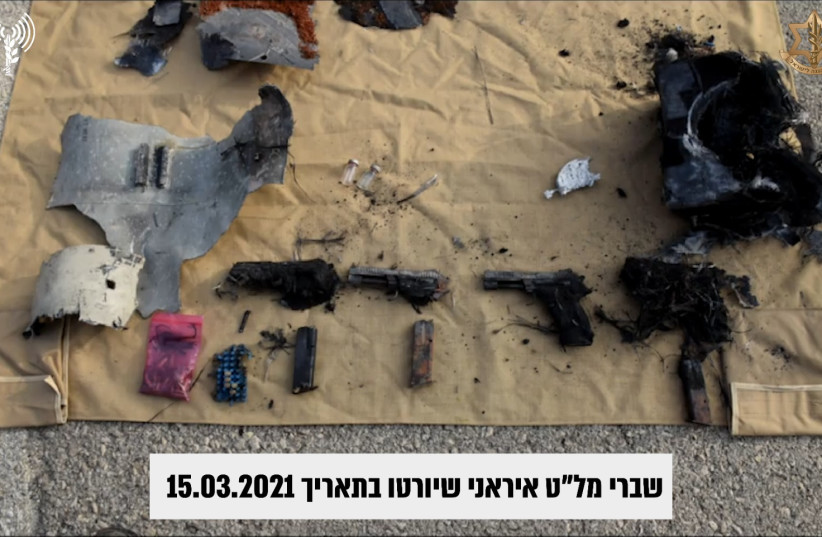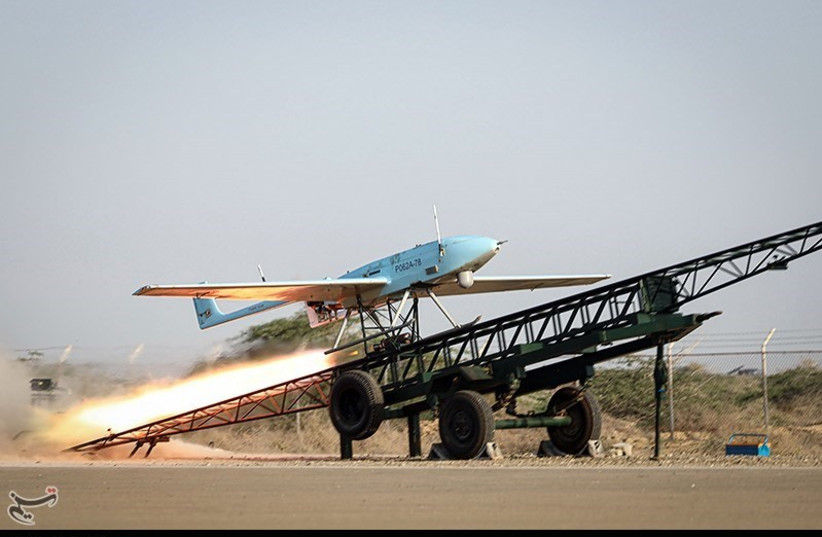The IDF’s defense of hazardous substance areas from drone attacks is insufficient, State Comptroller Matanyahu Englman said on Wednesday.
Although he recognized that the IDF has made significant progress in defending Israel’s borders from drone attacks, he said that defense systems focused around hazardous areas were specifically weak.
Englman said that an attack on hazardous areas could potentially lead to starting fires or the leaking and spilling of hazardous substances in a dangerous form, or into an area where it could cause massive damage.
“A hazardous substance attack incident could occur in the middle of a military conflict and could present a danger to human lives as well as to the more general health of the population in the adjoining areas,” he said.
Not only might the drone itself cause physical damage to structures and facilities, but by the nature of the hazardous substance, a breach in the substance’s containment could lead to its spreading and causing much wider destruction to critical infrastructure and to the environment than even the initial drone strike itself.

Besides immediate harm to human beings, hazardous substances can harm the “air quality, make certain land areas unlivable, ruin agricultural areas and pollute water.”
In some circumstances, a hazardous substance attack could harm the function of whole sectors of the country’s economy if, for example, the area where the hazardous substance was released forced many residents or workers to flee their living areas and workplaces, especially if the workplace was a critical one.
Moreover, a hazardous substance incident “could block major arteries of travel,” upending standard transportation patterns.

All of these scenarios have become risks that are more likely to play out because drones themselves have become cheaper, easier to purchase or otherwise access, and more advanced in the capabilities they possess.
The report focused on the Home Front Command and broader relevant IDF units in planning and intelligence, the National Emergency Authority (RAHEL), the Israel Police, Fire and Rescue Services, the Environmental Protection Ministry, the Israel National Cyber Directorate and the National Security Council.
It said that the IDF still has not completed a full strategic plan for combating drones and other threats to the home front and to civilian areas, because it has not completed a prerequisite analysis of the nature of the threats themselves.
Englman said that the IDF and other authorities should have set time frames for routinely updating their strategic plans on these issues.
The Defense Ministry and RAHEL responded that in November and last month – both after most of the report was drafted – a ministerial committee had finally approved a strategic plan for dealing with a variety of disaster scenarios for the years 2022-2026.
They said that RAHEL and other related ministries were expected to provide updates to the strategic plans in the coming month.
The report said that the Environmental Protection Ministry has not yet completed its second level of analysis of the dangers posed by a potential strike on hazardous substance areas in the Haifa vicinity.
Other deficiencies cited by the report related to new licenses being issued without sufficient documentation or probing by the ministry.
The report said that no command center for dealing with hazardous substances issues and emergencies had been established despite the government playing with the idea for 14 years, since 2007, and operating some pilot programs.
The report said that six of nine fire stations that have special units for hazardous substances are not actually up to training standards. The report estimated that based on their current lack of readiness and improper training, the police will not be able to reach or properly function in the event of an incident.
An initial draft of the report was provided to the Prime Minister’s Office and to the previous Knesset State Control Committee on May 30, with the intent of publicizing it at a much earlier date.
However, because the opposition in the current Knesset has refused to operate the committee in protest over disagreements with the coalition regarding other committee assignments, publicizing the report was delayed.
Finally, in lieu of committee approval that may be impossible for the foreseeable future, Englman recently received permission from various Knesset officials to publish the report.
The report also references critiques as to how Israel is going about researching and acquiring new weapons systems, problems with the military police, and aspects of how the IDF is conducting coordination with other foreign militaries.
